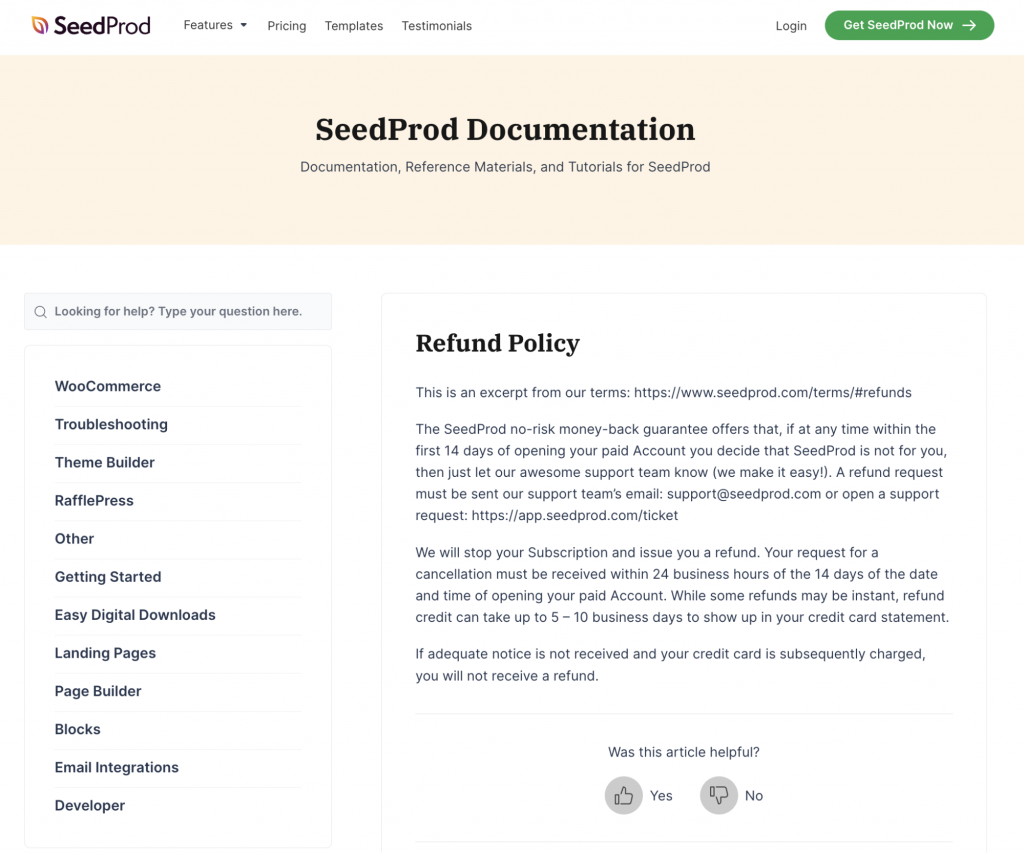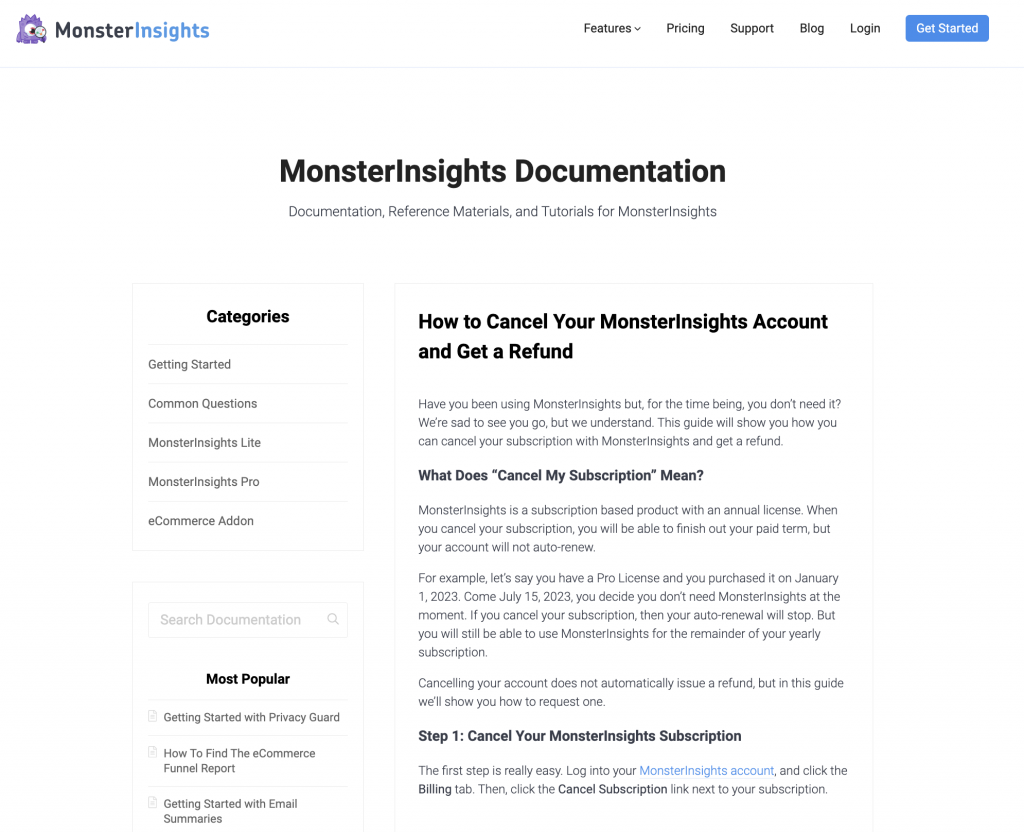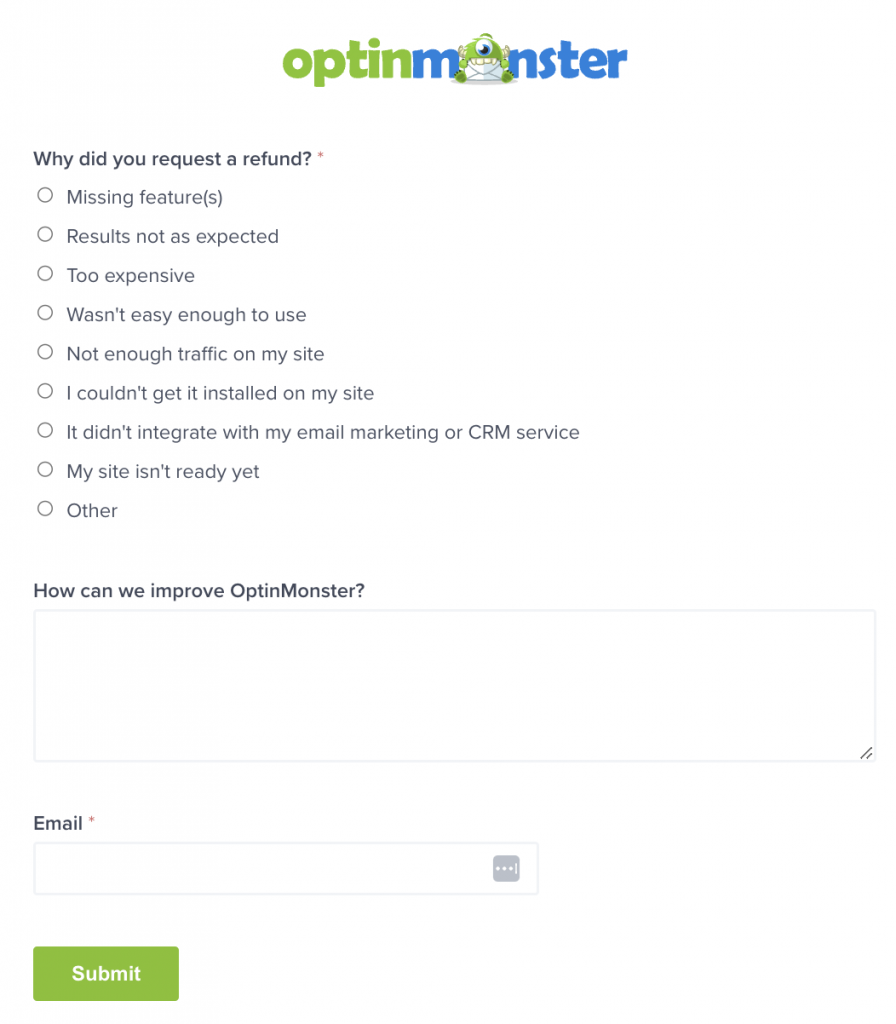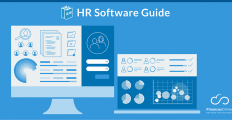When you’re selling SaaS products one thing that you have to constantly focus on is customer satisfaction. However, even the most well-designed SaaS products may sometimes fall short of customer expectations.
This can lead to refund requests. It’s important to understand that in the world of Software as a Service (SaaS), refunds are an inevitable part of doing business. This may be due to customer dissatisfaction, billing errors, or other reasons, like product quality.
Whatever the reason may be, when you receive such requests, you need to handle them with utmost care. After all, how you handle refunds can have a significant impact on your company’s reputation, customer loyalty, and the long-term success of your business.
The problem, however, is that handling such requests efficiently can be challenging. This can make things go haywire. This makes it easy for you to learn how to handle SaaS refunds effectively.
To help you do that, we have come up with this post. In this blog post, we’ll discuss best practices for handling SaaS refunds to minimize churn and build trust with your customers.
But first, for those of you who don’t know what a SaaS refund is, let’s quickly look at it.

What is SaaS Refunds
SaaS refunds refer to the process of returning money to customers who have purchased a Software as a Service (SaaS) product and are dissatisfied with it for some reason.
SaaS refunds are typically granted based on the terms outlined in the company’s refund policy. These policies generally specify under what circumstances refunds will be provided and how they will be processed.
Handling SaaS refunds effectively is important for maintaining customer trust and loyalty. It’s easier for businesses to minimize churn and build a positive reputation in the market if they can have clear refund policies, streamlined refund processes, and a focus on customer satisfaction.
Let’s now look at a few tips that can help you minimize churn and build trust with your user base.
1. Transparent Refund Policy
The first important point to consider when handling SaaS refunds is to have a transparent refund policy. This helps your users avoid confusion and minimizes misunderstandings.
So start by establishing a clear and transparent refund policy. Make sure to clearly outline the circumstances under which you can grant refunds to your users. It can be any product defects, unmet expectations, or billing errors. Whatever it may be, it’s important to clearly have it stated.

Refund policy example from SeedProd
Whatever the circumstance may be, it’s important that you mention everything in detail. Make this policy easily accessible on your website and in your product documentation. That way, your users will know exactly when to apply for refunds without any confusion. This will also help minimize churn and build trust.
2. Streamlined Refund Process
The next point to consider when handling SaaS refunds is to streamline the refund process. When a customer reaches out for refunds, they shouldn’t be struggling with the process.
Make it easy for them to request refunds. The best way to do that is to provide a simple, user-friendly process that allows customers to submit refund requests online. You can do it by using a contact form or through customer support.

Guide on refund process from MonsterInsights
You can also automate the refund process where possible. This will help you minimize delays and reduce the burden on your support team.
3. Prompt Response
Sometimes, you may not take refund requests too seriously and delay your responses. This can be very frustrating for your users. It might also lead them to lose trust in your brand and convince them to exit.
If you don’t want that to happen, make sure to respond to refund requests promptly. It’s crucial to acknowledge receipt of the request and provide an estimated timeline for processing the refund. By keeping your customers informed throughout the process, you can manage expectations and reduce frustration.
4. Fair and Consistent Refund Decisions
The next point to consider when handling SaaS refunds is to maintain a fair and consistent refund decision. Making fair and consistent refund decisions is crucial for reducing churn and maintaining trust with customers. By treating all refund requests equally and applying the refund policy consistently, companies can avoid perceptions of favoritism or unfair treatment.
This approach helps build trust with customers, as they are more likely to feel valued and respected, even if their refund request is denied. Consistency also ensures that customers know what to expect when requesting a refund.
This can help manage expectations and reduce frustration. Fair and consistent refund decisions are key to preserving customer relationships and minimizing churn in the long run.
5. Communication and Transparency
Effective communication and transparency in refund policies are essential for reducing churn and building trust with customers. It’s very important for businesses to clearly communicate your refund policy, including the circumstances under which refunds are granted.
Transparency in refund decisions, such as providing detailed explanations for why a refund request was approved or denied, helps build trust and credibility with customers. Besides, keeping customers informed throughout the refund process, including providing updates on the status of their refund, can help manage expectations and reduce frustration.
If a refund request is denied, try to clearly explain the reasons why it happened and offer alternative solutions if possible. Transparency can help build trust and mitigate any negative feelings customers may have about the refund process.
6. Learn from Refunds
When people claim refunds, it’s obvious that they aren’t fully satisfied with your product. This means there is still room for you to improve. The best way to work on these improvements is to use your refund requests as an opportunity to learn and understand your product better.

An example of a refund survey from OptinMonster
You can then use it to improve your product or service for better. Analyze the reasons for refunds and look for patterns or trends that could indicate underlying issues with your product or customer experience. Use this feedback to make necessary improvements and prevent future refund requests.
7. Focus on Customer Experience
Focusing on customer experience is paramount when handling SaaS refunds. By offering a good experience, you can significantly reduce churn rates and boost trust in your brand.
When you prioritize the customer’s needs and concerns throughout the refund process, it becomes easier to turn what might have been a negative experience into a positive one.
Always focus on providing clear and easy-to-understand refund policies, streamlining the refund process to minimize inconvenience, and ensuring prompt and empathetic communication with customers.
By focusing on customer experience, you can not only reduce churn by retaining customers who feel valued and respected but also build trust in your brand by demonstrating your commitment to customer satisfaction.
Conclusion
Handling SaaS refunds can be challenging. But you can manage it effectively if you have a proper strategy for it. This requires a combination of clear policies, streamlined processes, and a customer-centric approach.
By implementing these best practices, you can minimize churn, build trust with your customers, and turn refunds into opportunities for improvement and growth.
We hope you found this post helpful. Do let us know in the comments if you have any other tips for handling SaaS refunds. We would love to hear from you.























Leave a comment!